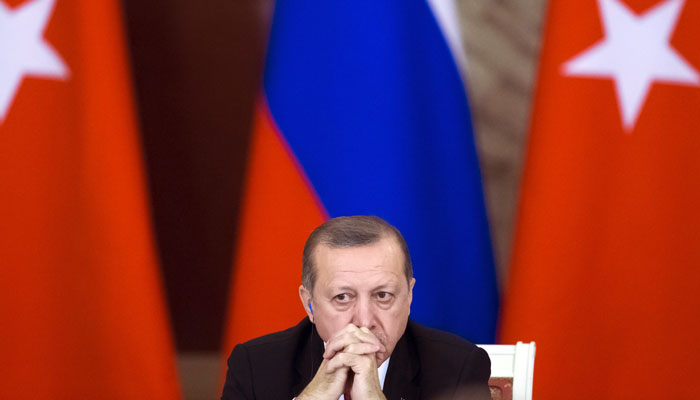Russia and Turkey held urgent talks in July on connecting Turkish companies and lenders to the Russian central bank’s alternative to the SWIFT financial messaging system, Bloomberg reported.
The two sides met soon after Turkey risked the threat of US sanctions by taking delivery of a Russian S-400 air-defense missile system, snubbing demands by the Trump administration to cancel the deal and sparking outrage in Congress.
Russian Deputy Finance Minister Alexei Moiseev confirmed the talks took place after details of the meeting emerged from a government document that was found dumped in a landfill near Moscow. A picture of the Finance Ministry letter detailing the meeting with Turkish Deputy Finance Minister Bulent Aksu was published on the Telegram channel of Russia’s Baza news service on Monday.
“The feasibility of signing a memorandum at these negotiations was discussed, it was decided that we need to work on it and now we are working on it,” Moiseev said by phone late Tuesday. “Depending on what will be in the memorandum, we will proceed.”
The Bank of Russia established the financial messaging system in 2014 with the aim of “reducing external risks” and protecting against the threat of being cut off from the global SWIFT service. It aims to ensure uninterrupted services for transferring messages in SWIFT formats, according to a presentation on the central bank’s website. Putin said in June that Russia is in talks about connecting China to the network. The central bank also created Russia’s MIR card and the National Payment Card System to process domestic payments in 2015 in response to sanctions risks.
A senior Turkish Treasury official confirmed the meeting took place, adding that Turkey holds routine talks with Russia as it does with other countries. The two sides discussed rising levels of business, tourism potential, the improvement in bilateral ties and processes related to trade in national currencies, the official said.
Topics at the talks in Moscow included access for Turkey’s banks to the Russian messaging system as well as extending MIR’s use to more Turkish lenders, according to the letter. Officials also discussed payments in national currencies.
Russia has significantly reduced the dollar’s share in its international trade and reserves over the past two years, amid the risk the US may extend sanctions to include banning Russian banks from settlements in the greenback. President Vladimir Putin said in November that the contract to sell the S-400 to Turkey was not settled in dollars.
The discussions between Turkey and Russia were so urgent that the deputy director of the ministry’s financial policy department paid personally for the costs of hosting the Turkish officials at a special hall for state delegations in Moscow’s Vnukovo airport, according to the dumped letter, which showed him seeking compensation.
